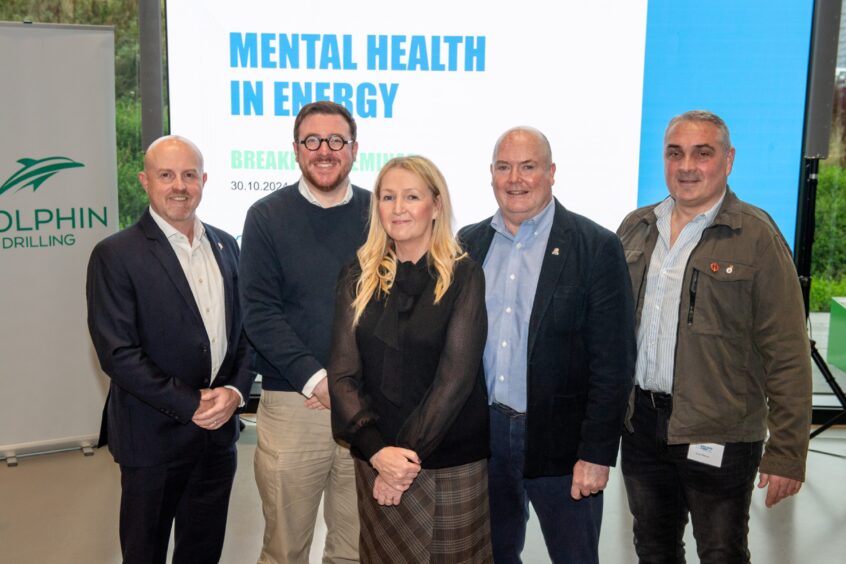
North Sea offshore work can take a toll and not only because of the elements.
As many 40% of onshore and offshore remote rotational shift workers experienced suicidal thoughts a survey by the International Association of Drilling Contractors (IADC) revealed. About a third are clinically depressed on rotation.
The stark statistics sparked support to improve mental wellbeing in energy with a 10-point framework called the Mental Health and Wellbeing Charter. Drawn up in June 2023, it includes themes like mental health awareness, support and monitoring in the workplace.
Its points arose out of conversations that continued after April last year, when 200 people gathered in Aberdeen’s Chester hotel for the Mental Health in Energy workshop hosted by the IADC North Sea Chapter in collaboration with Energy Voice.
The charter gains momentum
The initiative, Mental Health in Energy, brought industry leaders together on Wednesday at ONE BioHub.
The Dolphin Drilling-sponsored breakfast seminar provided updates and insights to supporters and signatories to the charter, which has gained momentum since 2023. The talks shared the unique pressures faced in the industry and how to work together to create a culture of mental health support.
IADC North Sea Chapter chairman Darren Sutherland opened the event with the message that with a culture of support for mental health, it is not just supporting individual team members, but “strengthening our entire industry, creating safer, more productive work bases”.
The first full talk was given by a the UK offshore energy industry chaplain Reverend Michael Mair. Offshore, the chaplain has been called to mental health interventions and memorials to those who tragically took their lives.
He shared some thoughts on some of the stressors offshore, despite being around their teammates. “They’re separated from their families, friends and support network, with an increased pressure to ensure that production remains high.”
There is also limited privacy to make a personal phone call, and time off depends on the weather, helicopters and flight crews. Rev Mair said: “Someone in crisis should not be in the middle of the North Sea.”
For someone in crisis, he cannot always be at the right asset at the right time. This is why he encouraged conversations of support be made within the workforce. One way can be through the help of trustworthy first aiders.
With WiFi more readily available offshore, it can lead to more awareness of problems at home, and a feeling of powerlessness. By the end of shift work, where there is a mentality of cracking on, workers would often retreat to their devices.
Poor mental health leads to more accidents
The IADC white paper showed found offshore workers are 15 times more likely to commit suicide than onshore. This can lead to accidents, and many of these may be mental health related without the association explicitly stated.
Simon Lee Maryan PhD, is a psychologist who previously worked in human intelligence. Dr Maryan mentioned some of the consequences of not having support. He explained that many people can have suicidal thoughts, but problematic plans can happen “when they linger and stick around”. Poor sleep can worsen mental states too.
The business case for top-down change
Accidents are expensive, and so is sick leave. Meanwhile, productivity drops not only by absenteeism but presenteeism. This agrees with what IntrospeXion founder Shabnum Hanif recently spoke out about – that in over half of ill health cases in industry are down to mental health and presenteeism is on the rise.
This calls for a change of culture “from the top down”. Sutherland, who is also VP of Europe & Africa at Borr Drilling, is a clear example of a leader trying to cultivate culture change around mental health this way.
In his Wednesday speech, he emphasised it is not companies who are solely responsible for an individual’s mental health problems. Meanwhile, creating a more supportive system is “top down” from the leadership level.
It is not just about us but engaging the next generation. “We have an opportunity to say we left the industry in a better place than we found it,” he said.
How to interpret the charter
This can begin with the charter, but as the speakers advised, it is not meant to be taken as policy or regulation, but a framework.
The goal is to create change by enabling conversation. This does not mean it is a list that requires every box to be ticked, but a starting point, where even one box would be an achievement. Mental Health in Energy are open to having conversations with organisations of all sizes about working towards even ticking one box.
Practical tools
Ideas to cultivate more cultural support can go beyond mental health awareness, but involve proactive training and proven support methods.
Ann McCreath, who has both clinical and oil and gas industry experience, shared practical tools introduced in a project at Wood. This involved recruiting mental health and wellbeing champions and introducing the health protection calendar for 2024 which marks awareness dates like world suicide prevention day. A bit like the charter, “it is a menu, not a prescription” she said.
On the hot topic of first aiders, McCreath added their training should be up-to-date. This might involve common case scenarios like dealing with relationship difficulties or family moves. Leadership may also receive advanced training of their own. Next, she is interested to see how the charter can be incorporated into global mental hand wellbeing plans and how KPIs might be developed.
Looking forward
This year, the North Sea mental health and wellbeing survey was sent out to offshore workers. Results are undergoing analysis and look set to be released in November, which should inform their next steps. This could potentially become an annual survey.
While this was the first event of this kind, Sutherland shared with Energy Voice that “Into 2025, we are planning on holding these member events on a quarterly basis to help support charter signatories in their efforts in improving mental health in the energy sector.”
Reflecting on the seminar, he added: “It was great to see the charter really coming to life today with member companies sharing lessons learned and a lot of rich discussion on what needs to be done to continue to drive cultural change on mental health in our industry.”
Mental Health in Energy is open to discussing with organisations of all sizes how they can start to navigate the charter, shown on their website.
The goal is to keep conversations going, engage with charter members and promote industry best practices and lessons, such as the many insights shared at Wednesday’s seminar.
Men are at higher mental health risk offshore, where they take up the majority of the workforce. They would need to feel safe to open-up about problems.
Speeches at the Mental Health in Energy event offered common emphasis on training support systems and putting the right mental first aiders out there.
Support systems in the offshore and onshore workforce are crucial, but culture change is top down, from leadership, to show mental health and wellbeing is, after all, a priority.
Recommended for you

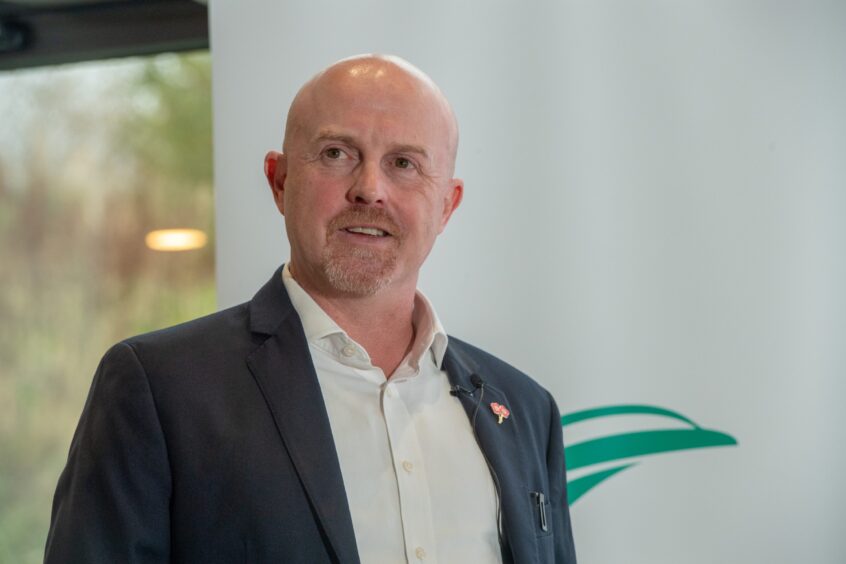 © DC Thomson
© DC Thomson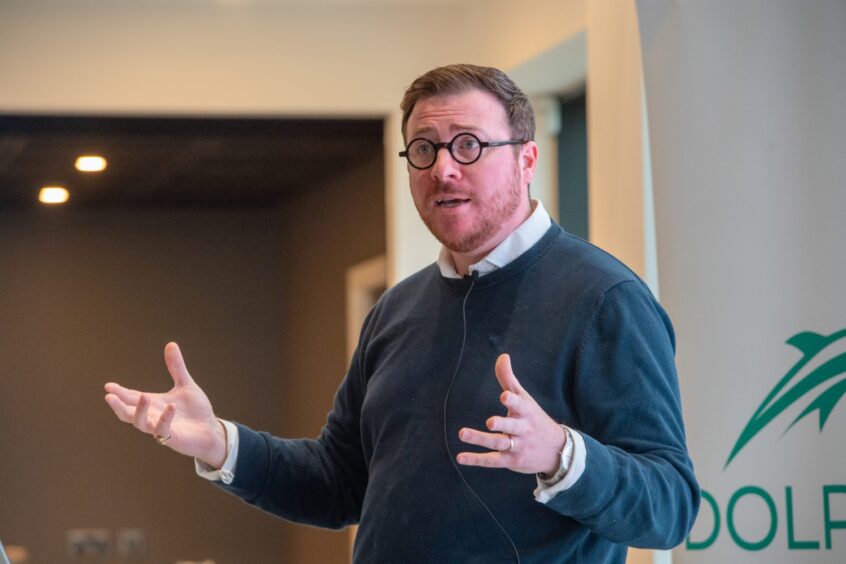 © DC Thomson
© DC Thomson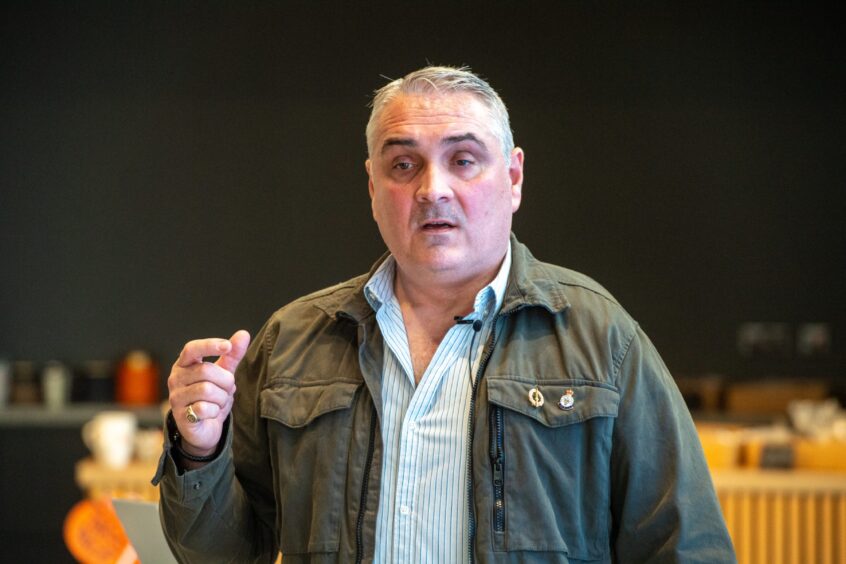 © DC Thomson
© DC Thomson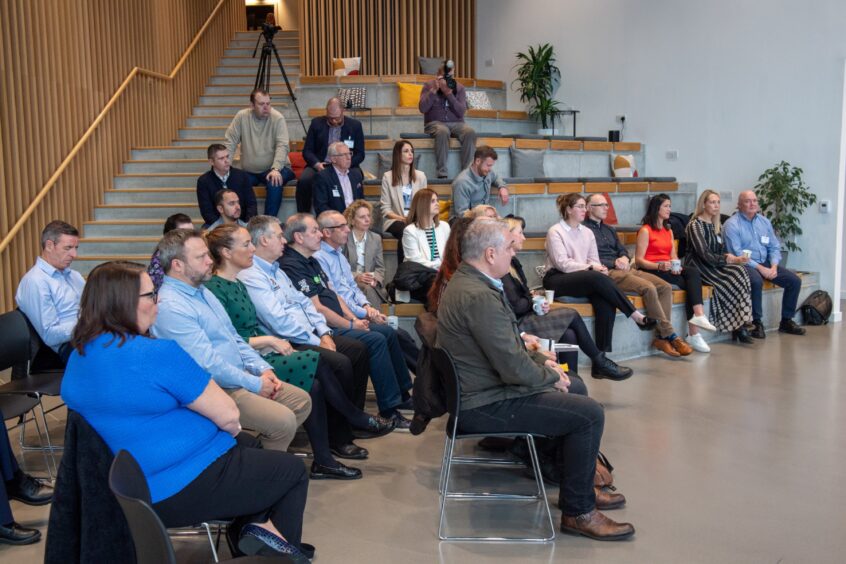 © DC Thomson
© DC Thomson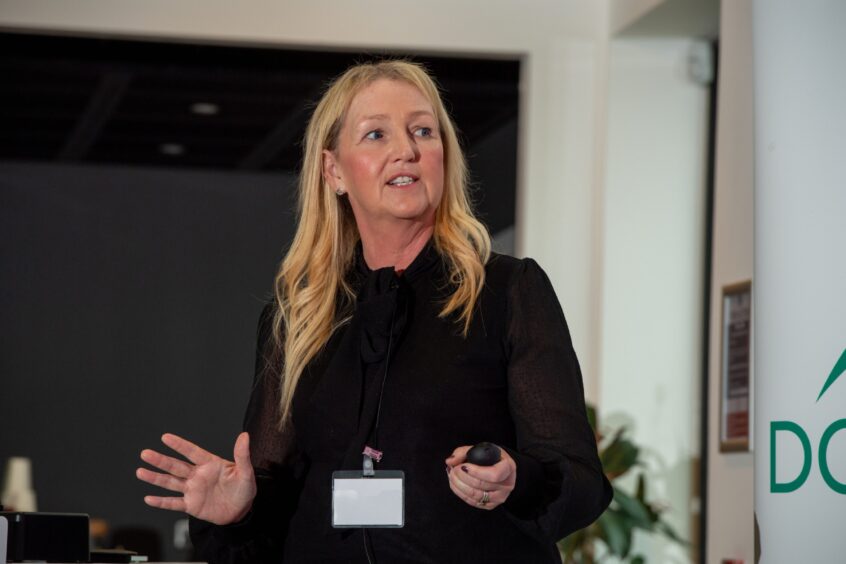 © DC Thomson
© DC Thomson